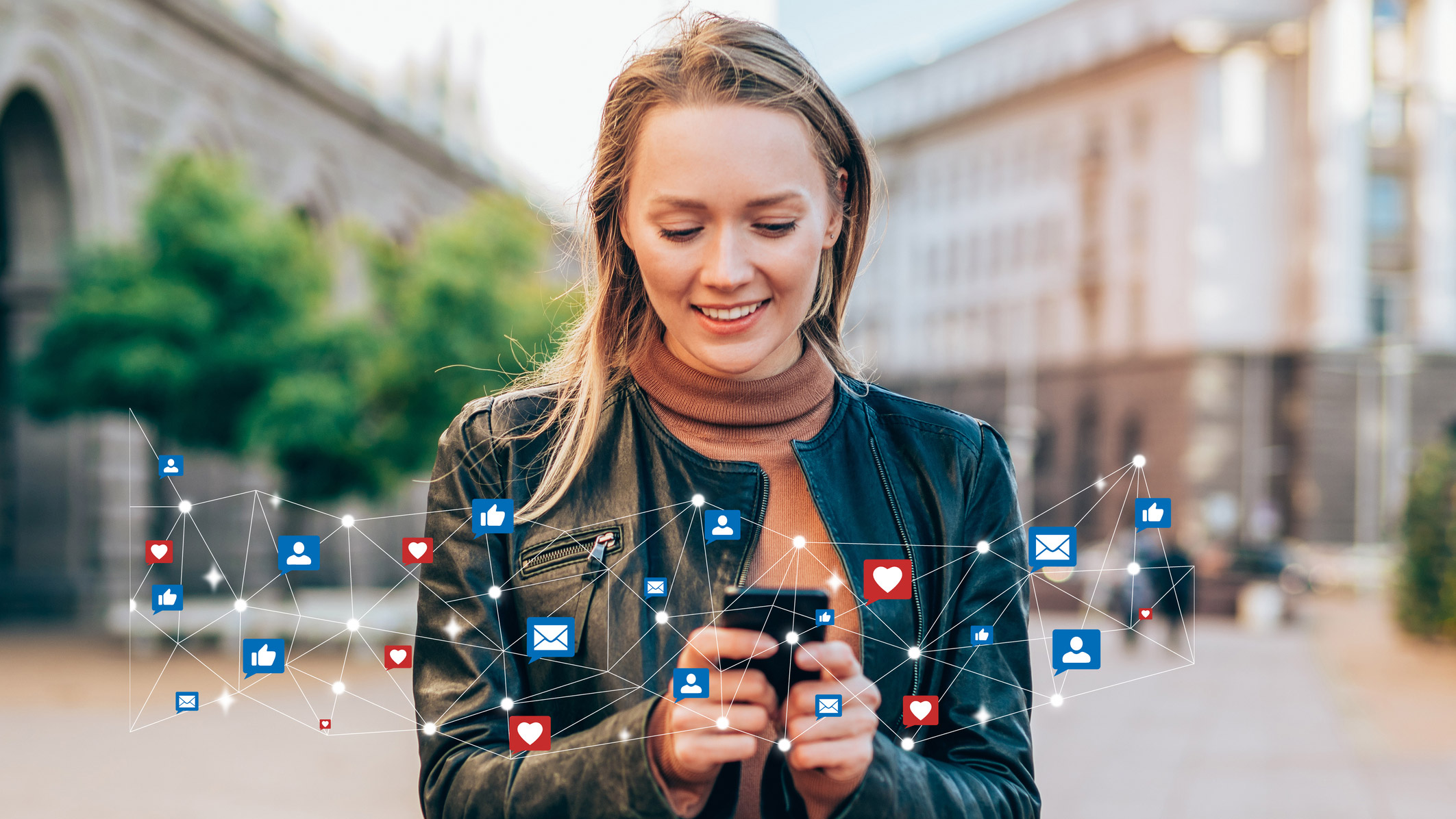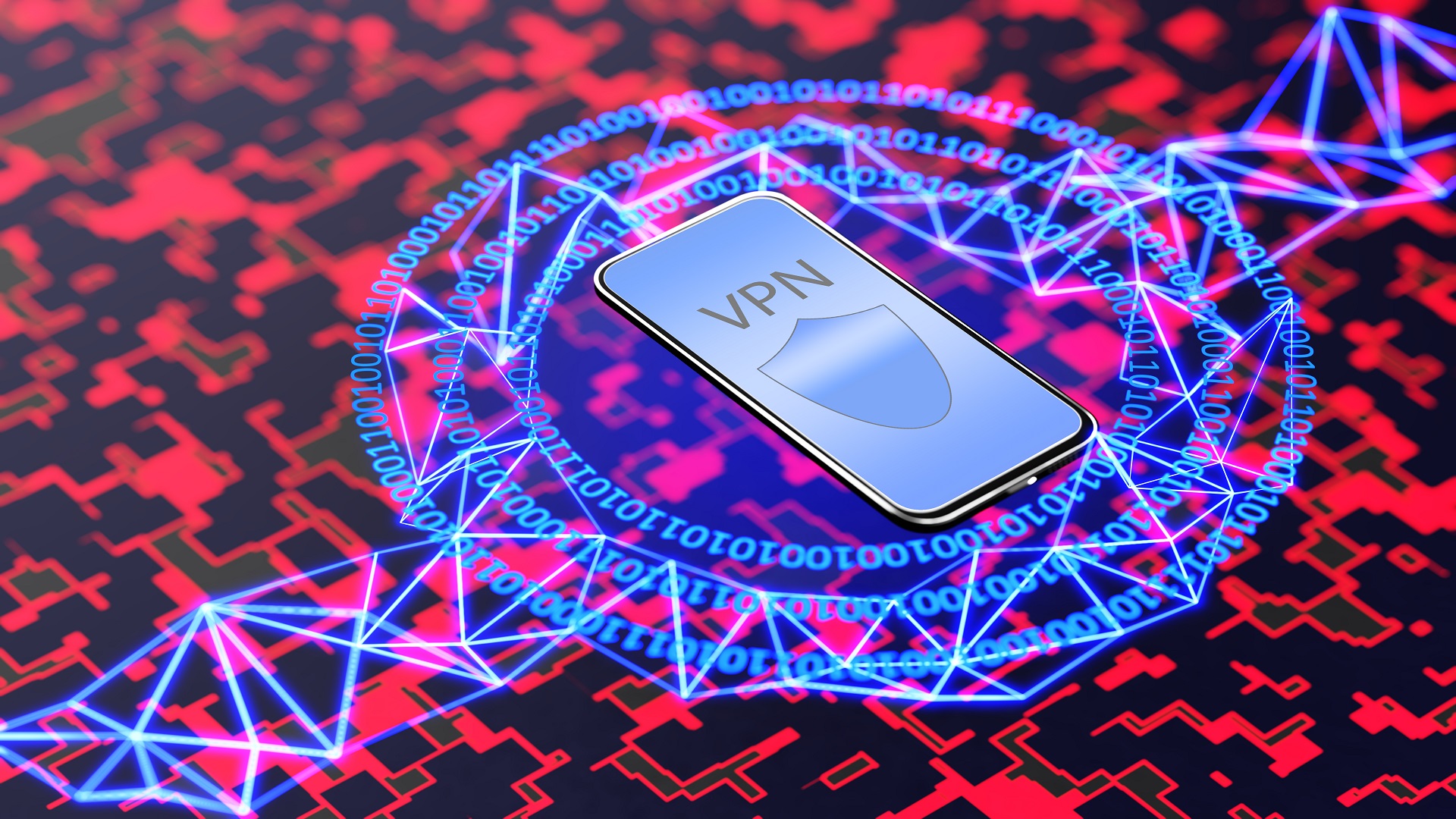Getting rid of social media anonymity to save democracy? The VPN industry says no
Four VPN providers shed light on what a democracy without anonymity would look like

Sign up for breaking news, reviews, opinion, top tech deals, and more.
You are now subscribed
Your newsletter sign-up was successful
Update: On November 27, 2024, we made some edits to include a clarification from Mark Weinstein, author of the op-ed article cited throughout the article.
To save our democracy, we must get rid of online anonymity. That's the headline of an opinion piece published on The Hill at the beginning of the month.
Mark Weinstein, author, tech, and privacy expert, argues that social media platforms should implement user ID verification to fight against bad actors creating fake accounts to spread misinformation and groom kids online.
"True verification is the only viable way for a social media platform to avoid the onslaught of bots, trolls, and manipulative human forces hiding behind the curtain of anonymity," he writes.
Tensions between anonymity and safety online are nothing new – but they are now getting legislative traction. Nonetheless, many technologists, privacy advocates, and security software developers have long warned against the chilling effect of getting rid of anonymity for both people's rights and security. I spoke with some of the best VPN providers currently on the market to understand what's at stake.
Online anonymity ensures people's right
In his op-ed, Weinstein calls for a solution to stop misinformation and protect children online. These issues are certainly sitting high on the political agenda of democracies. Yet, according to Yegor Sak, CEO at Windscribe, getting rid of anonymity is not a solution.
"We don't have to choose between anonymity and democracy, as they're not two sides of the same spectrum, they're complementary," he said. "Anonymity is important for free speech and, without free speech, there is no democracy."
Born in Belarus but then emigrated to Canada, Sak is familiar with how a surveillance state can endanger democratic values and social rights by heavily monitoring everything citizens do online to clamp down on dissent.
Sak believes that ID checks and regulations are a slippery slope that could eventually turn Western democracies into surveillance states themselves.
He said: "Today, there are over 3 billion people living in countries where saying the "wrong" thing will land you in prison, or worse. Do you want to live in a country like this? I sure do not, which is why my parents moved from a place like that."
I can’t believe I even have to say this, but here we are: getting rid of anonymous speech online is an extremely bad idea that would silence and endanger a lot of marginalized people AND ALSO physically threatening the writer of this op-ed and his family with violence is bad and… https://t.co/7EwLWNGfOdNovember 5, 2024
Lauren Hendry Parsons, Digital Privacy Advocate at ExpressVPN, also pointed out how a lack of anonymity would especially penalize individuals who hold powerful entities accountable, such as journalists, whistleblowers, and activists.
Without online anonymity, she explains, these individuals would face increased personal risk, limiting in this way a critical check on authority. Large organizations have the means to allocate significant funds to surveillance if they wish to do so. Likewise, governments could use "near-limitless resources" to track down dissenters.
"Protecting anonymity thus protects democracy itself by safeguarding free speech, encouraging transparency, and ensuring people can challenge power structures safely," said Parsons.
"Protecting anonymity thus protects democracy itself"
Lauren Hendry Parsons
Everyone can engage in political discussions without facing immediate public scrutiny or retribution thanks to anonymity, too. This, according to NordVPN cybersecurity expert, Adrianus Warmenhoven, fosters a vibrant democratic discourse online while protecting people's privacy, "which is essential for a healthy democracy," he added.
Removing this protection, Warmenhoven explained, could lead to reduced participation and engagement online. People might refrain from contributing to discussions for fear of personal repercussions if everything they say can be directly linked to them.
On his side, Weinstein pointed out that his op-ed addresses anonymity on social media only – no other web experiences.
"I am clearly advocating for saving privacy, along with saving anonymity and protection for whistleblowers/marginalized folks, and saving democracy," Weinstein told TechRadar, adding that anonymity on social media is exactly what allows democracy and civil discourse to be severely undermined by anonymous bots and trolls like as happened during the Brexit campaign.
He said: "In combination with targeting, boosted content, and newsfeed manipulation, kids worldwide are experiencing a heretofore unprecedented mental/emotional crisis."
Anonymity means data security
Mandatory ID checks will require everyone signing up to a social media platform, in this case, or other online services to share their most sensitive data, like the country's ID details, driving license, social security number, and so on.
Such a data collection not only goes at odds with the concept of "data minimization" ruled out by GDPR-like privacy laws, but it also comes with a high data security risk attached.
As Goda Sukackaite, Privacy Counsel at Surfshark, explains, improper data protection can lead to data breaches, unauthorized access, and other threats that endanger people's security.
In 2024, data breaches have especially grown in size and frequency, with many incidents targeting consumers' data. In May, over 500 million users' data was put up for sale online when Ticketmaster was breached in one of the biggest incidents of the year. Other statistics also show the rise in identity theft, with over 550 million reported cases in the US through the first half of the year alone.
On this point, Sukackaite said: "According to Surfshark's Global Data Breach Statistics, leaked account data remains a significant issue, with breaches increasing by 96% in Q3 of 2024 compared to the previous quarter worldwide, rising from 215 million to 423 million."
Despite the risk, experts also recognize the value of having well-implemented ID verification systems. Trustful ID checks can help platforms quickly identify and take action against those who violate terms of service or engage in illegal activities while reducing misinformation and personification incidents.
To find a balance between safety and security, Warmenhoven from NordVPN explains that ID checks need to be implemented with stringent safeguards to protect users' personal data and uphold their privacy rights.
What's next?
As the strong sentiment behind regulations undermining anonymity keeps rising – whether they promote ID checks or weaken encryption like what's known as Chat Control in Europe – the VPN industry expects the demand for privacy tools to grow further over the next years.
According to a recent NordVPN survey, increasingly more people want the internet to forget about them, with the highest concerns reported in the US and Canada. Such numbers are a clear message – people seek to take agency back over their digital lives.
Despite this privacy-friendly attitude among citizens, Parsons from ExpressVPN believes that pressures for ID verification and restrictions on encryption may continue as governments seek greater control over digital spaces. These could even end up, she explains, in widespread restrictions on privacy tools.
"In the next decade, we expect a tug-of-war between privacy advocates and those calling for increased surveillance," she said.

Besides the ethical and security risks, tech experts have also been skeptical about the effectiveness of anonymity-killer regulations.
For instance, mandatory ID checks on porn sites have already proved to be faulty as people can use a VPN or similar software to bypass these restrictions. Likewise, breaking encryption from everyone will simply push criminals towards non-legitimate messaging apps instead.
This is why Sak from Windscribe believes better digital education should be the priority on the democratic governments' agenda.
"Adults need to be educated in critical thinking and not taking online comments for face value, even if they come from a 'reputable' source," he said. "In turn, adults need to educate their children on the same."
He also believes it shouldn't be up to social networks or governments to decide where or not kids can use these services. "It's the job of the parents, no different than teaching kids to look at both sides of the road before crossing, not talking to strangers, and not sticking forks into electrical sockets."

Chiara is a multimedia journalist committed to covering stories to help promote the rights and denounce the abuses of the digital side of life – wherever cybersecurity, markets, and politics tangle up. She believes an open, uncensored, and private internet is a basic human need and wants to use her knowledge of VPNs to help readers take back control. She writes news, interviews, and analysis on data privacy, online censorship, digital rights, tech policies, and security software, with a special focus on VPNs, for TechRadar and TechRadar Pro. Got a story, tip-off, or something tech-interesting to say? Reach out to chiara.castro@futurenet.com